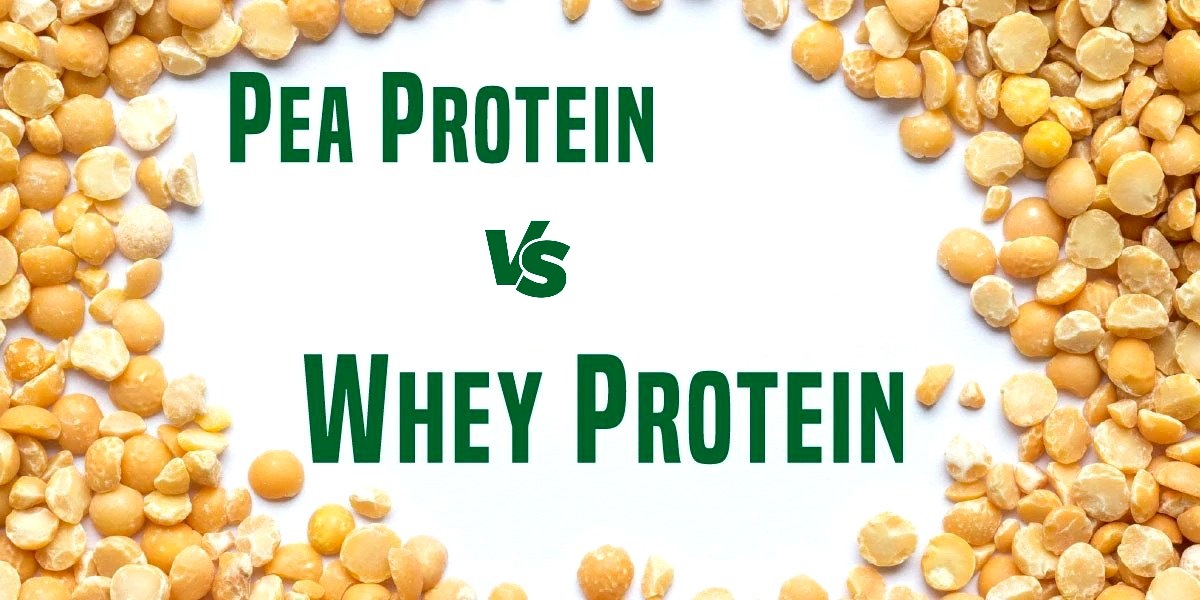Contrary to popular belief, whey protein is not the only protein powder option in the market. In an industry vastly dominated by animal products, plant-derived protein supplements can easily be overlooked.
Unfortunately, while there are thousands of reviews on animal protein powders, it can be difficult to find reliable and extensive reviews for its plant-based counterparts. And with many different options, it can be difficult to know where to start.
Experts recommend taking a blend of pea protein and brown rice protein for maximum efficacy. In this article, we’ll be looking into seven of the best powders to give you maximum nutrition.
Review Summary:
- 1. Transparent Labs Organic Vegan – #1 Best Tasting
- 2. Orgain Plant-Based
- 3. BulkSupplements
- 4. NAKED Nutrition
- 5. Vega One
- 6. PurePea
- 7. Source Naturals
Table of Contents
Best Pea Protein Powder (Brands for 2024)
Pea protein powders are just as effective—if not more, as whey protein powders. Naturally, with the different types of plant protein out there, it can be difficult to make a choice between hemp protein or soy protein or find the best one for you.
We found that pea protein is one of the best healthy options in the market. One thing is for sure though, make sure you choose a protein powder with digestive enzymes and make sure it’s soy-free. Take a look at seven of the best brands in the market for your next vegan protein shakes.
1. Transparent Labs – Organic Powder
Transparent Labs is at the top of our list simply because of their ingenuity when it comes to flavors and delivering when it comes to taste.
While this particular protein powder doesn’t come in their usual unique flavors, it comes in vanilla and chocolate and is equally just as great tasting as their other products.
Here’s why you’ll like it:
Great Mixability – this product boasts impeccable mixability and tastes great on its own. This means whatever you’re looking for; whether it’s a quick grab and go meal or a complex smoothie or shake, it will mix well and will work well with nearly any flavor combination.
- 100% clean formula
- Does not contain additives
- Does not contain any artificial ingredient
- USDA Organic
- High protein yield per serving (24 grams per serving)
- Quite expensive
Summary: The only setback you’ll see on this product is its price. However, if you’re looking for quality and great flavors, we assure you Transparent Labs made sure this supplement is worth every cent. It features a clean formula that does not contain any artificial or harmful additives and it also contains a premium protein that you can be sure is great quality.
.
2. Orgain Plant-Based Protein Powder – Best For Sensitive Stomachs
Available in six delicious flavors with dietary fibers included, Orgain Plant Based is popular for anyone who normally suffers from stomach distress.
It’s 100% vegan and plant-based protein powder, too, so you don’t have to worry much about your dietary restrictions. One of its best qualities is that it contains zero added sugars so you don’t have to worry about a sugar rush or that too-sweet aftertaste you’d normally get from flavored protein powders.
Here is why you’ll enjoy it:
6 grams of Dietary Fiber – for anyone who normally suffers from bloating or gassiness when drinking supplements, this brand is highly ideal and healthy. It contains 6 grams of dietary fibers per serving which helps your body digest it more easily.
- High protein yield per serving (21 grams per serving)
- No added sugars
- Many flavor options
- The complete essential amino acids
- No artificial additives
- Somewhat high-calorie count per serving
Summary: This powder is ideal if you’re looking for something that is least likely to upset your sensitive stomach. Despite containing 150 calories per serving, it does contain 21 grams of pure plant based protein powders per serving and it tastes delicious as well.
.
3. BulkSupplements – Best Value For Muscle Building
BulkSupplements is normally at the top of our list whenever we’re looking for anything high in value and totally worth the price.
They’re well known for their affordability and the reliability of their products. BulkSupplements, in particular, are both relatively cheap and contain good protein.
Here’s why you’ll like it:
High Protein Yield – each serving contains 24 grams of pure plant based protein isolate. It’s 100% clean and sustainably sourced so you’re guaranteed that you’re only getting the absolute essentials when you take it.
- High protein yield per serving (24 grams per serving)
- Contains calcium and iron
- Contains dietary fibers
- Affordable
- Does not mix well
- The package could use improvement
Summary: It comes highly recommended for anyone looking for something that is affordable, yet still high quality. BulkSupplements proves time and time again that you don’t have to break the bank to get quality protein. However, the packaging is only available in resealable bags and it doesn’t mix very well. I recommend blending it into your smoothies or adding it into your cooking instead.
.
4. NAKED Nutrition – Ideal for Muscle Recovery
Naked Pea is sourced from North American Farms and is well-priced for the quality. It’s easily digestible and is ideal for anyone who is trying to speed up muscle recovery after a particularly demanding post-workout or physical activity.
It comes in four flavor options, which include Matcha and an unflavored option. This makes it highly versatile and better for all-around use if you’re looking for something you can mix into virtually anything.
Here’s why you’ll like it:
Purest of the Pure – the unflavored protein powder contains only one ingredient: 100% yellow pea protein shake. It contains no additives and contains zero artificial sweeteners or coloring. This makes it ideal for anyone who wants to keep additional ingredients to a minimum to get truly pure protein sources.
- Pure and clean ingredients
- Great flavor choices
- Highly versatile
- High protein yield per serving (over 20 grams per serving)
- Low sugar content
- Low in carbohydrates
- Free of fat
- Does not mix very well
Summary: Although you may find it a bit difficult to blend into your drinks, this protein powder does deserve some praise when you consider that it has a high protein yield despite its affordability. It also offers great flavor options which includes the classic vanilla and chocolate. Moreover, it comes unflavored which allows it to be as versatile as possible.
.
5. Vega One
This all in Vega One shake contains every ingredient you need daily. These are all the things your body needs and that you could pick out on your own if you had the time, all in a convenient scoop.
It comes in eight vastly different flavor options, which allow it to be versatile, easy to grab and go on busy days, and taste as good as you need it to be.
It’s available in varying containers that have as little as 10 servings up to 45 servings. If you’re looking for something Non-GMO project certified, gluten-free and vegan-friendly, then you’ve found it.
Here’s why you’ll like it:
Convenient Meal Replacement – It is ideal for anyone who wants something quick and easy for busy days. It has a high protein yield per serving as well as Omega-3 ALAs, a good serving of veggies and greens, vitamins, minerals, and probiotics. Talk about getting your daily requirement in a glass!
- No added sugars
- Contains dietary fiber for easy digestion
- 20 grams of protein per serving
- Contains Omega-3 ALAs
- Contains probiotics
- Contains multiple vitamins and minerals
- Not lowest in calories
- Does not taste very good on its own
Summary: One of the most superficial yet off-putting aspects of this supplementation is the fact that it turns even the most vibrant smoothies to a sickly green or grey color. Moreover, if you’re looking for something you can drink on its own, you probably won’t enjoy this brand. However, you will enjoy the nutritional benefits that come with each serving such as the added minerals and vitamins and nutrition from leafy greens.
.
6. PurePea – Good For Weight Loss (Low-Calorie)
PurePea protein is a dietary supplement that is all-natural and designed to be drinkable even when you add it straight into water.
It’s easily digestible and has a high bioavailability. It is sourced from yellow peas that are sourced and grown in North America.
You can be assured that it is sustainably sourced and is not genetically modified, unlike other products in the market. It is also processed through a method that does not contain any chemical solvents, so you’re guaranteed that you’re putting only the best ingredients into your body.
Here is why you’ll like it:
Great-Tasting and Vegetarian – unlike animal-based protein, it is vegan protein powders and is easily digestible. Moreover, it tastes great on its own, which makes it ultimately more convenient for anyone who is trying to find a highly convenient protein powder.
- Easily digestible
- non-GMO
- Extracted through a patented technology
- Contains a good amino acid profile
- Does not contain soy
- Sustainably sourced
- Tastes good on its own
- Easily mixable
- You will need to remix it every once in a while
Summary: While this product does tend to mix well, you will need to keep mixing it if you don’t drink it all in one go. However, it does taste great on its own, is sustainably sourced and it’s also highly digestible. One of its best aspects is the fact that it contains an amino acid profile that is somewhat similar, yet better than what you can normally find on whey protein powders. It’s also soy-free and sourced sustainably using a patented technology with yellow peas sourced and grown in North America.
.
7. Source Naturals
This Source Naturals powder is sourced from garden peas and is a great alternative to whey powders. It’s highly versatile and can be used in a variety of ways, such as mixing it into beverages, cooking, or using it for baking.
Some of its best qualities are that it is highly digestible and contains a concentrated protein formulation that is 78% protein. It is manufactured using a chemical-free procedure that is water-based as well, so you’re guaranteed that you’re not putting anything harmful into your body.
Here’s what you’ll like:
High-Quality Protein Source – this protein features a highly concentrated formula and is guaranteed to be hypoallergenic. It doesn’t contain any harmful additives so it doesn’t cause stomach distress like flatulence or nausea as well.
- Highly versatile
- Mixes well
- Highly concentrated
- Hypoallergenic
- non-GMO
- Convenient
- Easily digestible
- Sustainably sourced
- low in fat
- A bit pricey
Summary: Apart from the price, there’s really not much you can complain about with this protein powder. It’s convenient, reliable and features a clean and sustainable formula and isolation process that delivers only the best and most necessary nutrients to your body. You will need more than one scoop to get your daily dose though, which might be more of a hassle to you if you’re used to taking only one scoop a day.
.
Who Can Benefit from Pea Protein?
Aside from the obvious vegetarians and vegans, a wide range of people can benefit from taking vegan protein powders.
This includes athletes, those who are working hard for weight loss, and people who are looking for an affordable yet reliable meal replacement.
Let’s break down how it can benefit each of these groups below:
- Vegetarians – to anyone who is following a vegetarian diet, it can be difficult to find a reliable protein supplement, especially if you’re not able to get it from your daily food. It can also be tiring trying to figure out what to cook; next, that’s full of protein without repeating recipes. It helps minimize the inconvenience of cooking and allows you to have a grab-and-go meal.
Vegans – living a vegetarian lifestyle is difficult enough; vegans, on the other hand, have to stay away from dairy products. That’s why these powders are ideal because they do not contain dairy products and are usually always guaranteed to be vegan-friendly.
- For those who are following a strict diet – pea protein is helpful when it comes to maintaining a satiated feeling. This can help with weight loss on top of helping you ingest something your body can more easily digest in comparison with solid foods. Luckily, it can be mixed with mostly anything, so you’re definitely going to be able to alter it to fit your needs.
- Athletes – athletes always need a boost of extra protein because of their demanding physical activities. But it can be difficult to maintain an ideal weight and consume enough protein for your body. This is where pea protein comes in. Not only is it easily digestible, it rarely causes any negative side effects like bloating that you can often experience with whey proteins. Moreover, pea protein is often more nutritious because it is loaded with other vitamins and nutrients you wouldn’t find in traditional protein powders.
- Those on a budget – while everyone needs protein, not everyone can afford it. Solid protein in itself can be quite expensive. Not to mention protein supplements. That said, some of the pea products listed above are definitely budget-friendly.
Does Pea Protein Make You Gain Weight?
According to a recent study conducted by researchers at the University of Maryland, if you’re trying to lose weight, you can skip the extra carbs. The study was published in The Journal of Physiology on Oct. 8. Because of the study’s design and results, the research makes it clear that eating protein does not affect weight. However, protein in moderation is good for your metabolism, and as you increase your protein intake, you might see a reduction in your body fat percentage. So, choose healthy proteins like egg whites and beans instead of beef and pork. For an extra protein boost, opt for Greek yogurt.
ADVERTISEMENT. Along with eggs and Greek yogurt, protein powders, and isolates might be a good place to start. While many protein powders come with corn and soy protein as a base, you can easily make your own protein isolate by mixing with water and adding whatever ingredients you’d like. For example, blend frozen berries with 2 tablespoons of oat or flaxseed meal powder, and slowly stir in your preferred protein powder until well combined. Pea protein is the most widely available type of protein in the grocery store, and you can find it in some Greek yogurts.
What Are the Side Effects of Pea Protein?
Generally, there aren’t any documented cases of pea protein powder, causing adverse side effects. Of course, if you’re allergic to it, you may want to consider a different plant protein.
Having said that, there are some side effects that although are not entirely studied and proven to pose a problem, you may need to know:

In general, it tends to be high in sodium. While it is unlikely that you’ll experience any adverse side effects, you may want to consult a doctor beforehand.
Gout Flaring – it’s no secret that split peas can cause uric acid levels to rise in your body. If you suffer from gout, it may not be a good idea to choose pea protein since it can cause flare-ups that nobody wants.
Kidney Problems – this side effect goes for every type of protein. Generally, too much protein is proven to be bad for your kidneys. If you take too much protein, your kidneys could fail to work properly.
That’s why it’s important to make sure you’re consuming the right amount of protein daily. You shouldn’t be taking too little, or it won’t be very effective. You also shouldn’t be taking too much as it can cause adverse health issues.
Pea Protein vs Whey Protein
I’m sure you’re all familiar with whey. Who isn’t? When you search for protein powders, it’s usually whey protein that pops up. Although that certainly isn’t a bad thing, for anyone who is searching for a better alternative, you might overlook its plant-based counterpart: pea protein.
At first look, whey might win you over simply because it contains more BCAAs than pea protein. However, that isn’t to say that pea protein doesn’t contain a substantial amount of BCAAs. In fact, the pea protein contains three times more arginine compared to whey. This could mean it’s better for building muscle.
That said, there are definitely pros and cons to both. Here are my key takeaways:
- Whey is notorious for causing gassiness, bloating, and stomach distress. Pea protein, on the other hand, very rarely causes this.
- Pea protein is a plant-based protein. This makes it more ideal for people who are following a vegetarian or vegan diet. Moreover, it’s also ideal for anyone who suffers from lactose intolerance.
- Some have argued that whey tastes better than pea protein. Let me make this clear: any unflavored protein powder will taste horrible. The key is to mix it into the right beverages or choose brands that carry good tasting vegan proteins.
- Pea protein is cheaper than whey and is just as effective. It’s also more nutritious. If you’re worried about it lacking BCAAs, you can always mix it with brown rice protein, which makes it even more nutritious.
Frequently Asked Questions About Pea Protein Powders
Admittedly, there is a lot of confusion surrounding pea protein powders. For anyone who’s looking to switch to or try pea protein for the first time, we understand you might have heard rumors or are concerned about your well-being.
This is all understandable. That’s why we’ve taken the time to answer some of the most frequently asked questions about pea protein below.
Does Pea Protein Have Inflammatory Effects?
Contrary to claims, it is anti-inflammatory. This is because it’s full of different essential antioxidants that help prevent a variety of illnesses that affect both your body and your mind.
Is Pea Protein Powder Safe for Kidneys?
Yes, pea protein powder is generally considered safe for kidneys. Pea protein is derived from yellow peas and is a plant-based protein source that has gained popularity for its high protein content and suitability for individuals with dietary restrictions such as lactose intolerance or allergies to animal-based proteins.
Unlike animal-based proteins, pea protein is naturally low in purines and does not contain saturated fats or cholesterol. These qualities make it a kidney-friendly protein option. Purines are compounds that break down into uric acid, and excessive uric acid levels can contribute to kidney stones or gout. Since pea protein is low in purines, it poses a lower risk in this regard.
Moreover, pea protein is an excellent source of essential amino acids, including lysine and arginine, crucial for overall health and muscle function. Its balanced amino acid profile makes it a valuable alternative to animal-based proteins without the potential drawbacks associated with certain kidney conditions.
It’s important to note that individuals with existing kidney conditions should consult with their healthcare provider before making significant changes to their diet, including introducing new protein sources. While pea protein is generally well-tolerated, personalized health considerations may warrant adjustments based on individual health needs.
In summary, pea protein powder is considered safe for kidneys, offering a plant-based protein option with a favorable nutritional profile. As with any dietary change, consulting with a healthcare professional ensures that it aligns with individual health goals and requirements.
How Do I Choose Pea Protein Powder?
Selecting the right pea protein powder involves a few key considerations to ensure it fits your needs. First off, take a peek at the ingredients list. Look for options that stick to just pea protein isolate without extra fillers or additives.
Next up, check out how much protein is packed into each serving. Most pea protein powders offer around 20-25 grams per scoop, but make sure it lines up with your daily protein goals.
Since pea protein is typically free from common allergens like dairy and gluten, you don’t usually need to stress about allergies. Still, it’s wise to give the label a quick once-over to be sure.
Certifications can also clue you in on quality. Keep an eye out for USDA organic, non-GMO, and third-party testing stamps to ensure you’re getting a clean product.
Flavor matters too. Some brands offer up tasty options like vanilla or chocolate, while others keep it simple with unflavored varieties. Give a few a try to see what suits your taste buds.
Texture and mixability can make or break your protein shake experience. Look for a powder that blends smoothly without leaving behind any gritty bits.
It’s also worth considering sustainability. Look into the brand’s eco-friendly practices and whether they prioritize sustainable sourcing and packaging.
Don’t forget to skim through customer reviews for insights on taste, mixability, and overall satisfaction.
Lastly, compare prices per serving to find a pea protein powder that fits your budget without compromising on quality.
By weighing these factors, you can confidently choose a pea protein powder that ticks all the boxes for your dietary needs and preferences. And remember, it’s always a good idea to chat with a healthcare professional or nutritionist before making any major changes to your diet.
Does Pea Protein Powder Have Heavy Metals?
Based on the ingredients listed on a number of pea protein powders, including Protein Depot, Anytime Fitness, and Men’s Fitness, your protein shake could be sitting on the heavy side when it comes to iron and manganese. Iron is great, but too much will leave you feeling sluggish, or even tired and tired during your workday. If you feel sluggish, take a look at your diet, but if you’re out of ideas, you might want to consider choosing a supplement over a protein shake.
Just recently, the FDA released new regulations about the type of iron in protein supplements. It’s really important to know what’s in your protein shake or supplement so you can make a well-informed choice when it comes to the supplements that work best for you.
Fermented Pea Protein
Fermented beans are good for digestion and immunity. Fermented beans have nutrients like iron and B Vitamins that nourish your body. The last thing you would want to consume is foods with added chemicals that could be harmful to your health. You can buy the beans in powder form or in capsules. You can put some of it in a smoothie, or you can use it as a base for a meal. You must take Fermented Pea Protein for 28 days for it to work.
Your body can’t adapt to the new stuff easily. If you go off it after a while, your body will reject it. If you are pregnant, it is wise not to take it because it can cause cramps, vomiting, and upset stomach. Can it Cause Heart Disease? Can fermented peas cause heart disease? This is a big question on the minds of many people. Most people are unaware that they can get heart disease.
Is Trader Joe’s Pea Protein Powder Discontinued?
Trader Joe’s is great for stuff that’s sometimes harder to find. When the chain revealed a new line of its own fresh, made-in-house frozen, and chilled pantry items earlier this year, people were excited—so much so, that the grocery chain was selling out of the items even before the official launch.
And now, the store is reportedly taking a serious step back from the brand that made it famous. (Though it’s unclear if it’s the brand itself, or something entirely new.) Bustle’s emails to Trader Joe’s in the past few weeks have been going unanswered, and on Monday, The Cut reported that Trader Joe’s is dropping one of its best-selling, and most surprising, products: Trader Joe’s Pea Protein Powder. This isn’t the first time the store has taken a hit to its protein lineup.
Final Thoughts. Which Pea Protein Should You Pick?
Overall, there are many viable options when you’re searching for pea protein powders. Our top two choices would be Transparent Labs Organic Pea Protein Powder and BulkSupplements Pea Protein.
.
Both are arguably great sources of protein powders, with only a few differences. While Transparent Labs is the best tasting and offers great mixability and well-thought-out packaging, it can get pricey.
This is where BulkSupplements thrives since it delivers a high-quality protein source for an undeniably affordable price.
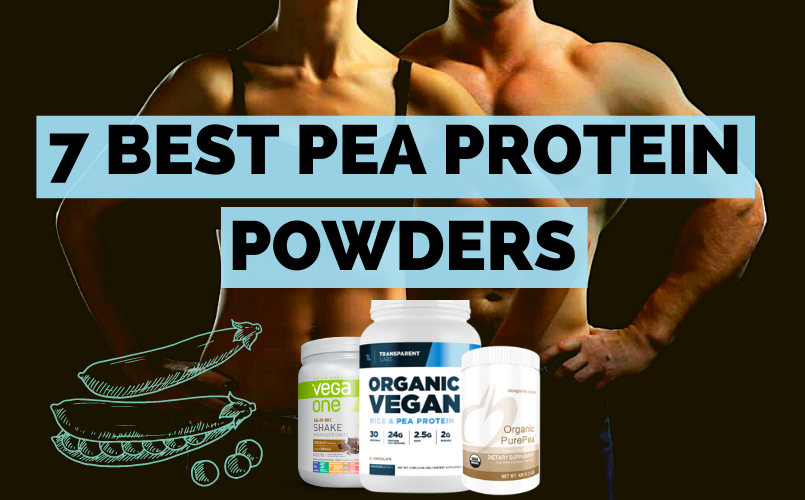
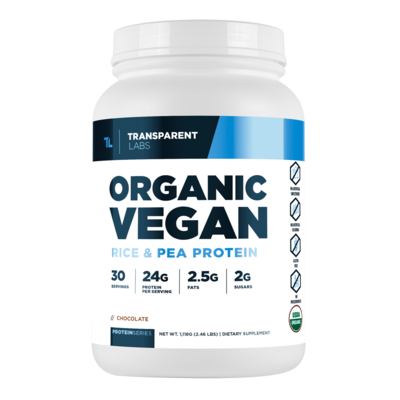
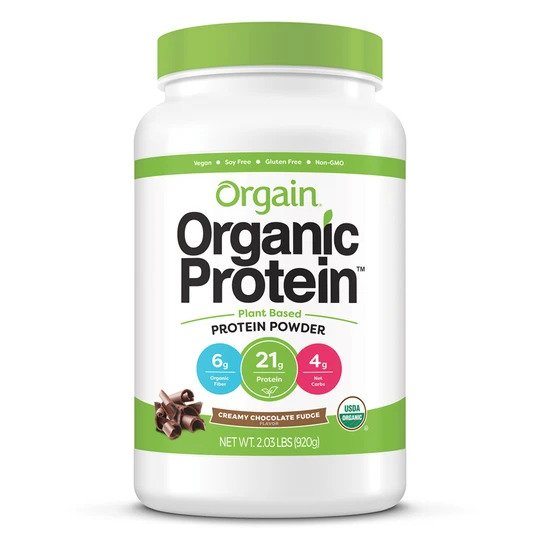
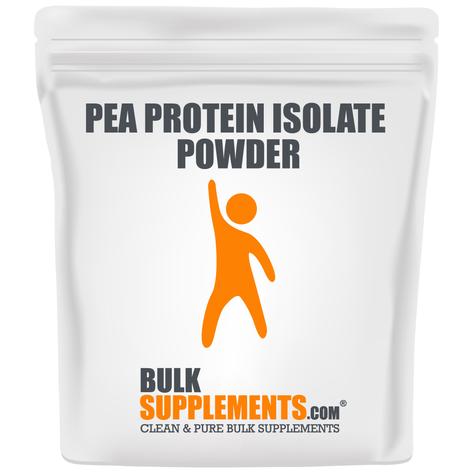
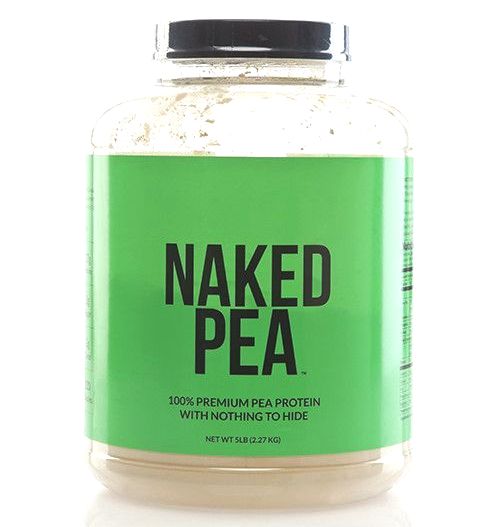
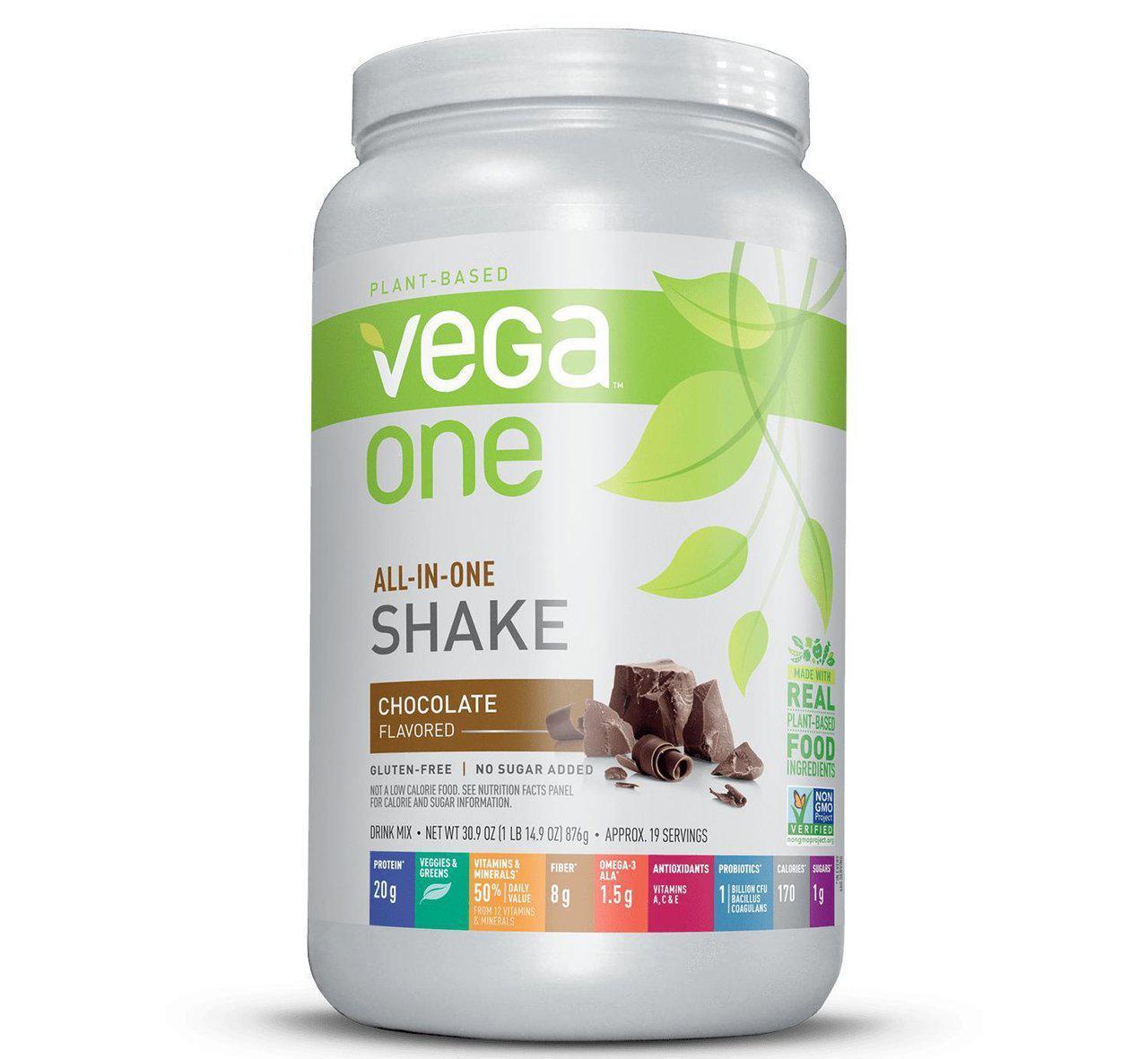
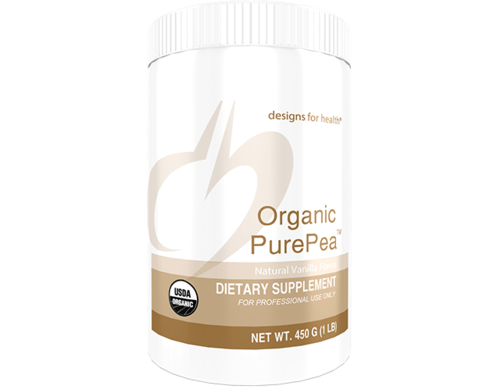
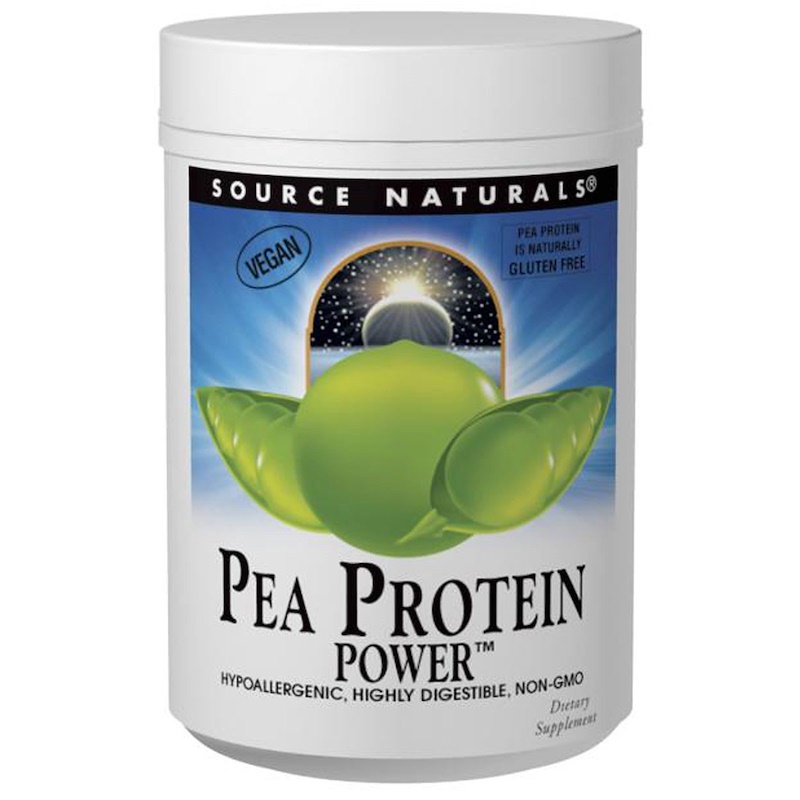
 Vegans – living a vegetarian lifestyle is difficult enough; vegans, on the other hand, have to stay away from dairy products. That’s why these powders are ideal because they do not contain dairy products and are usually always guaranteed to be vegan-friendly.
Vegans – living a vegetarian lifestyle is difficult enough; vegans, on the other hand, have to stay away from dairy products. That’s why these powders are ideal because they do not contain dairy products and are usually always guaranteed to be vegan-friendly.